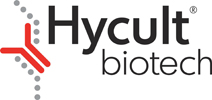
Hycult Biotech/Nectin-3, Mouse, mAb 103-A1/HM1053/100 µg
商品编号:
HM1053
品牌:
hycultbiotech
市场价:
¥9288.00
美元价:
5572.80
产品分类:
单克隆抗体
公司分类:
monoclonal_antibody
联系Q Q:
3392242852
电话号码:
4000-520-616
电子邮箱:
info@ebiomall.com
商品介绍
Description: Nectin-3, Mouse, mAb 103-A1
The monoclonal antibody 103-A1 recognizes mouse nectin-3. Nectin-3 is a 83 kDa type I
transmembrane glycoprotein. Nectin, originally isolated as poliovirus receptor-related protein (PRR), is
a cell-cell adhesion molecule of the immunoglobulin supergene family. Nectins are calciumindependent
immunoglobulin-like cell-cell adhesion molecules consisting of four members, nectin 1-4.
Nectins homophilically and heterophilically trans-interact to form a variety of cell-cell junctions,
including cadherin-based adherens junctions in epithelial cells and fibroblasts in culture, synaptic
junctions in neurons, and Sertoli cell-spermatid junctions in testis, in cooperation with, or
independently of, cadherins. Both nectin-2 and nectin-3 are ubiquitously expressed, whereas nectin-1
is abundantly expressed in brain. Nectin-2 and -3 are expressed in cells where cadherin is not
expressed, such as blood cells and spermatids. All members of the nectin family have two or three
splice variants. For nectin-3, three isoforms exist: nectin-3α, -3β and -3g of which nectin-3α is the
largest. Nectin-3, also known as PRR3, is a transmembrane protein that is predominantly expressed
in testis and placental tissues as well in many cell lines. Nectin interacts in vivo with both long and
short isoforms of afadin, an actin binding protein, at cadherin-based cell-cell adherence junctions in
various tissues and cell lines. Furthermore, the ectodomains of nectin-3 and CD155 (Poliovirus
Receptor) have shown strong affinity to each other.
Injection of antibody 103-A1 into lumen of seminiferous tubules leads to disruption of the actin
filaments in Sertoli cells at the Sertoli-maturing spermatid ectoplasmic specialization and exfoliation of
maturing spermatids form the seminiferous epithelium.
Specifications:
| Catalog number | HM1053 |
|---|---|
| Product type | Monoclonal antibodies |
| Quantity | 100 µg |
| Formulation | 1 ml (100 µg/ml) 0.2 µm filtered antibody solution in PBS, containing 0.1% bovine serum albumin and 0.02% sodium azide |
| Application | Flow cytometry, Frozen sections, Functional studies, Immuno assays, Immuno fluorescence, Immuno precipitation |
| Application Notes | IF: fixed in 2% paraformaldehyde in PBS optionally followed by methanol/aceton fixation (Ref 2-7) FC: 1 µg per 1 x 106 cells FS: injection of 1 µg into lumen of seminiferous tubules (Ref 7) IA: Indirect ELISA on 0.5 µg/ml mouse nectin-3 coated per well. Positive signal with 2 µg/ml antibody. IF: Cells are fixed in 2 % paraformaldehyde in PBS, optionally followed by methanol/aceton fixation (Ref 1-6) IP: 1-2 µg per 100-500 µg of total protein (1 ml of cell lysate) |
| Use | For immunohistochemistry and flow cytometry, dilutions to be used depend on detection system applied. It is recommended that users test the reagent and determine their own optimal dilutions. The typical starting working dilution is 1:50. |
| Immunogen | Recombinant mouse nectin-3 extracellular domain (50-400 aa) fused to IgG Fc |
| Isotype | Rat IgG2a |
| Species | Mouse |
| Cross reactivity | Human - No, Rat - No |
| Alias | PPR3, poliovirus receptor-related protein 3, PRR3, PVRR3, CD113 |
| Positive Control | L-cells (A cultured line of C3H mouse fibroblasts), |
| References | 1. Satoh-Horikawa, K et al; Nectin-3 a new member of immunoglobulin-like cell adhesion molecules that shows homophilic and heterophilic cell-cell adhesion activities. J Biol Chem 2000, 275: 10291 2. Mizoguchi, A et al; Nectin: an adhesion molecule involved in formation of synapses. J Cell Biol, 2002, 156: 555 3. Mueller, S et al; Loss of nectin-2 at Sertoli-spermatid junctions leads to male infertility and correlates with severe spermatozoan head and midpiece malformation, impaired binding to the zona pellucida, and oocyte penetration. Biol Reprod 2003, 69: 1330 4. Guttman, J et al; Evidence that tubulobulbar complexes in the seminiferous epithelium are involved with internalization of adhesion junctions. Biol of Reprod 2004, 71: 548 5. Inagaki, M et al; Roles of cell-adhesion molecules nectin 1 and nectin 3 in ciliary body development. Development 2005, 132: 1525 6. Inagaki, M et al; Role of cell adhesion molecule nectin-3 in spermatid development. Genes Cells,2006, 11: 1125 7. Toyama, Y et al; Disruption of ectoplasmic specilizations between Sertoli cells and maturing spermatids by anti-nectin-2 and anti-nectin-3 antibodies. Asain J Androl 2008, 10: 577 |
| Storage and stability | Product should be stored at 4 °C. Under recommended storage conditions, product is stable for at least one year. The exact expiry date is indicated on the label. |
| Precautions | For research use only. Not for use in or on humans or animals or for diagnostics. It is the responsibility of the user to comply with all local/state and federal rules in the use of this product. Hycult Biotech is not responsible for any patent infringements that might result from the use or derivation of this product. |
| Disease | Infectious diseases |
品牌介绍
荷兰HyCult Biotechnology(HBT)位于荷兰乌登,从1994开始制造检测抗体和蛋白质,主要侧重与病理学诊断有关的全套产品研发,既有纯化的重组蛋白和多肽,也有单抗和多抗,是世界一流的先天免疫领域的研究试剂制造商。
联络我们



